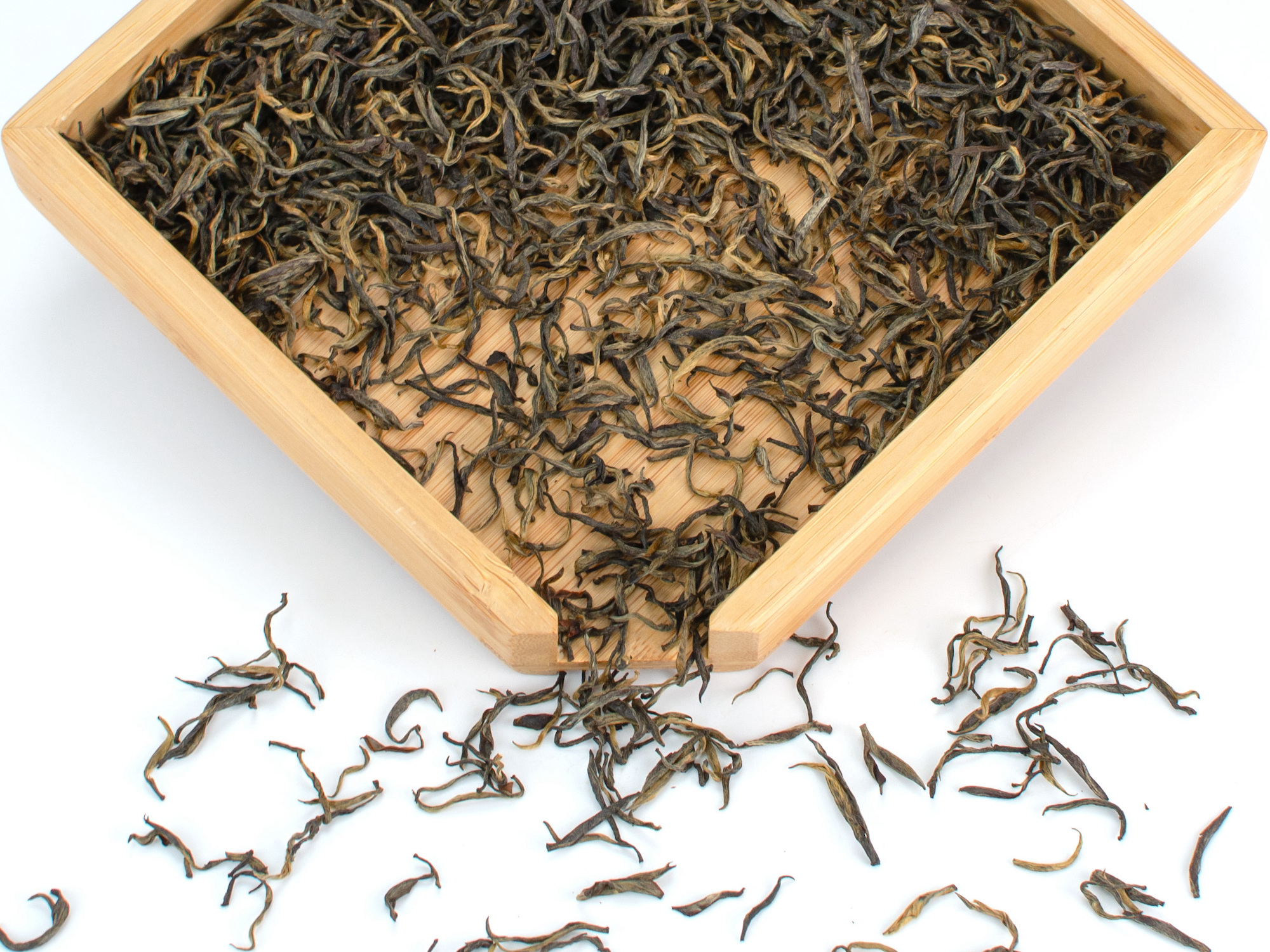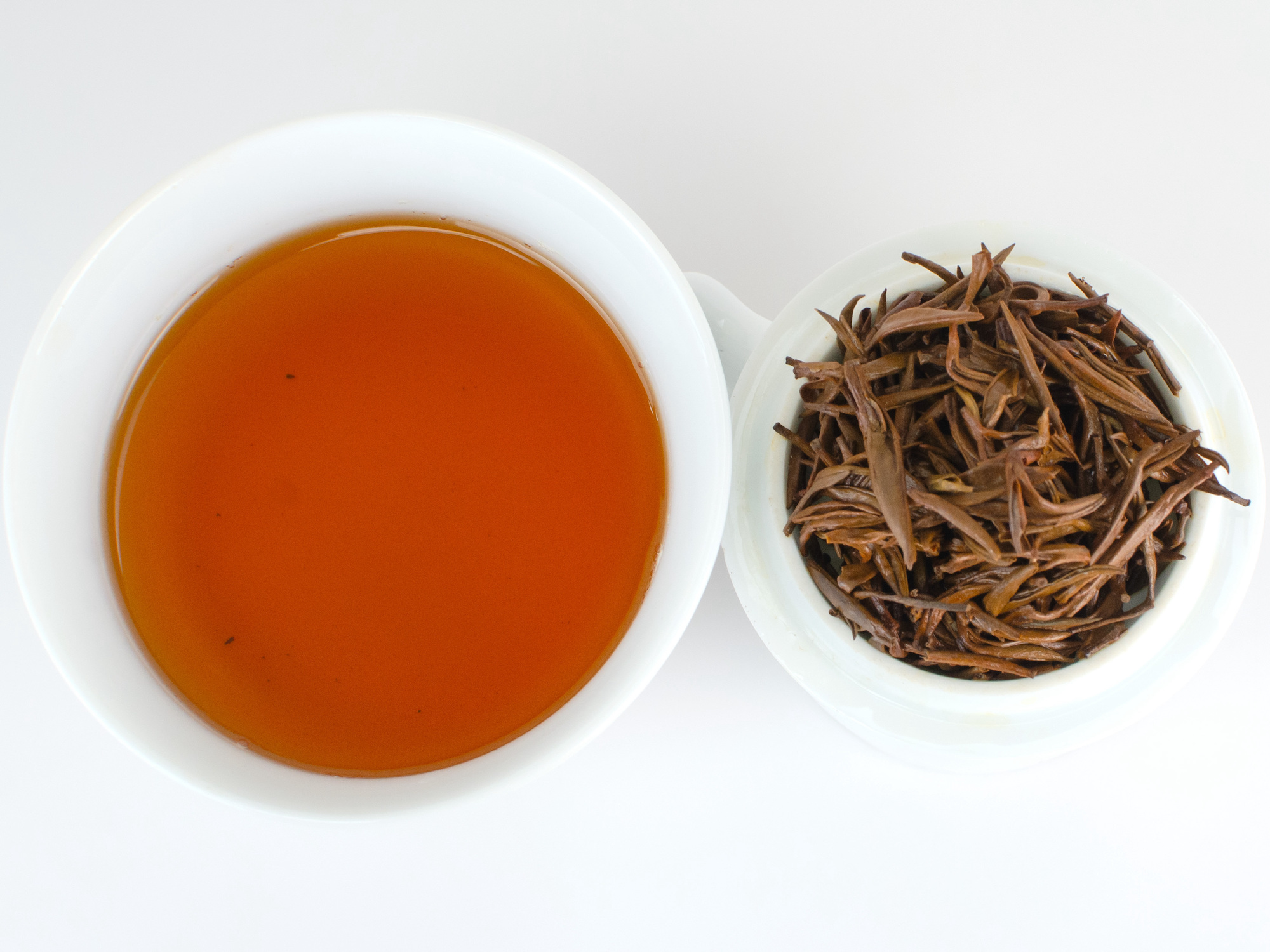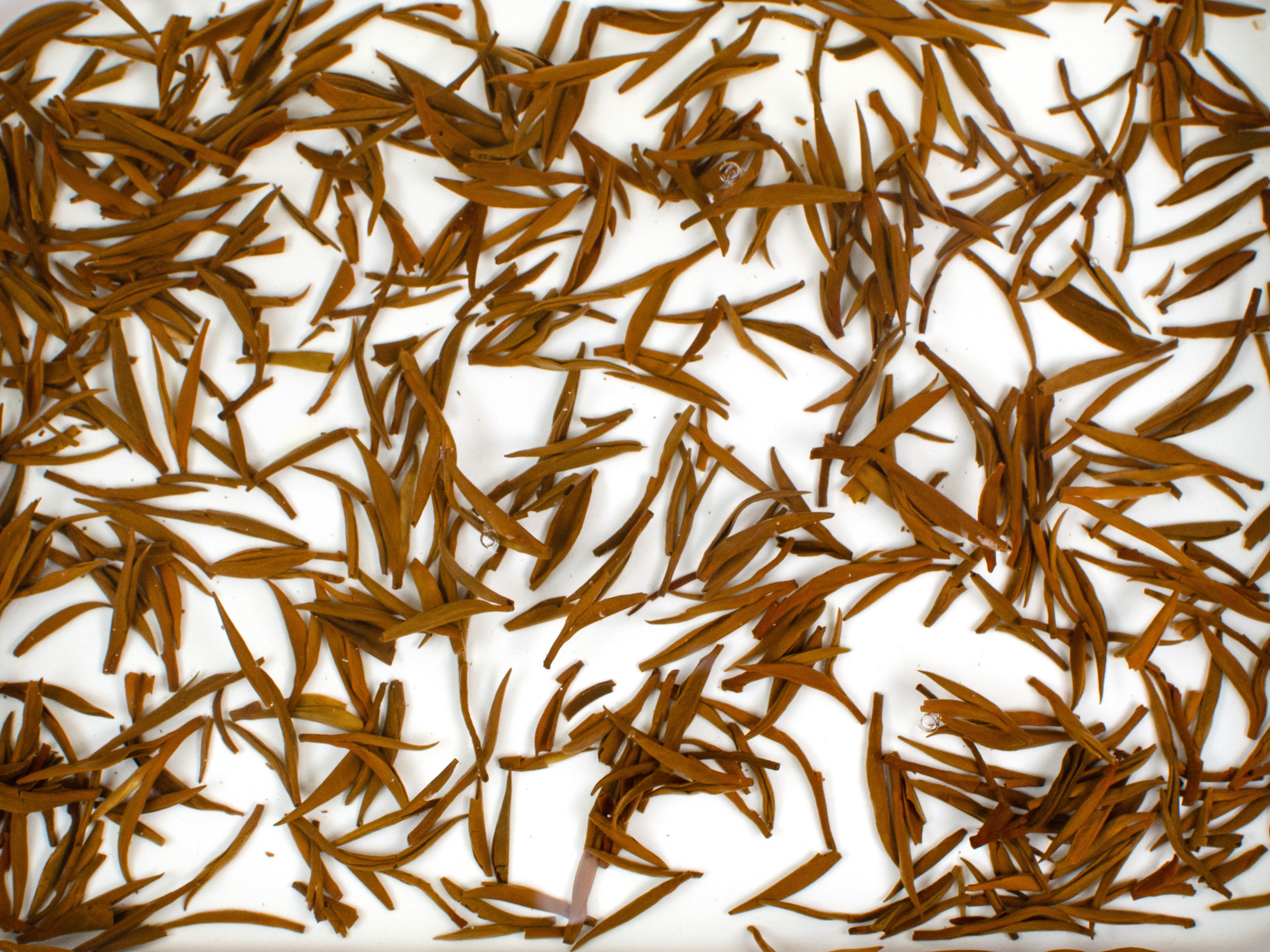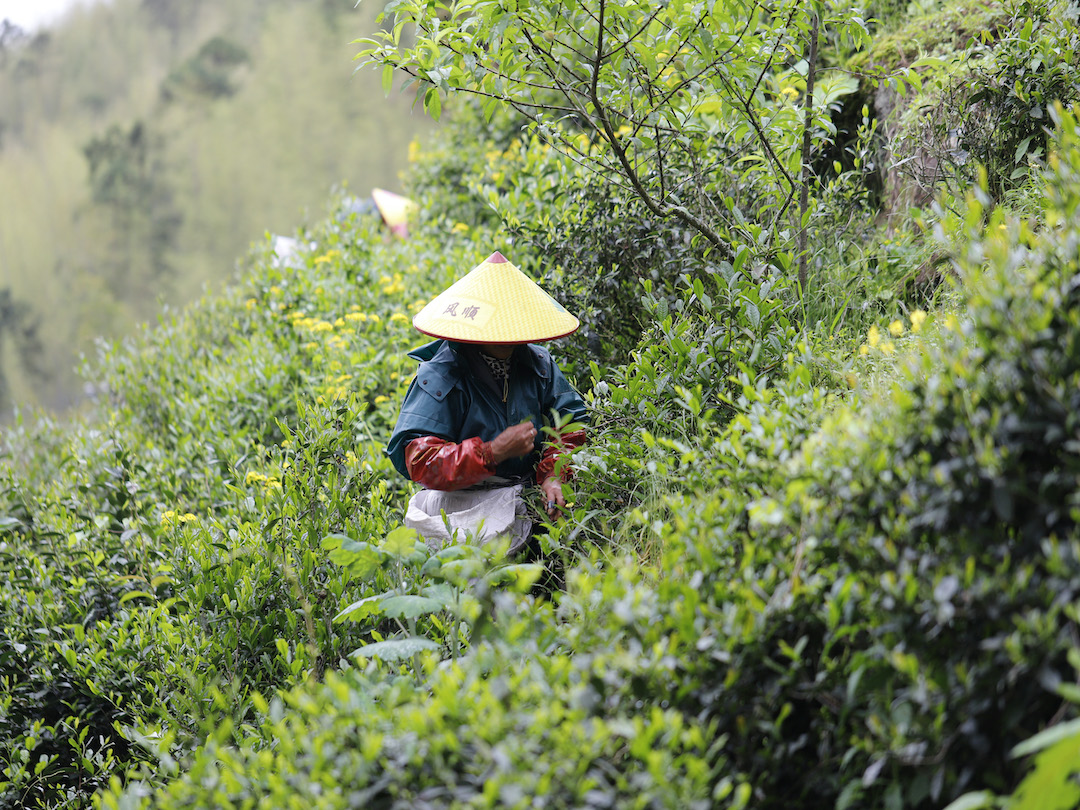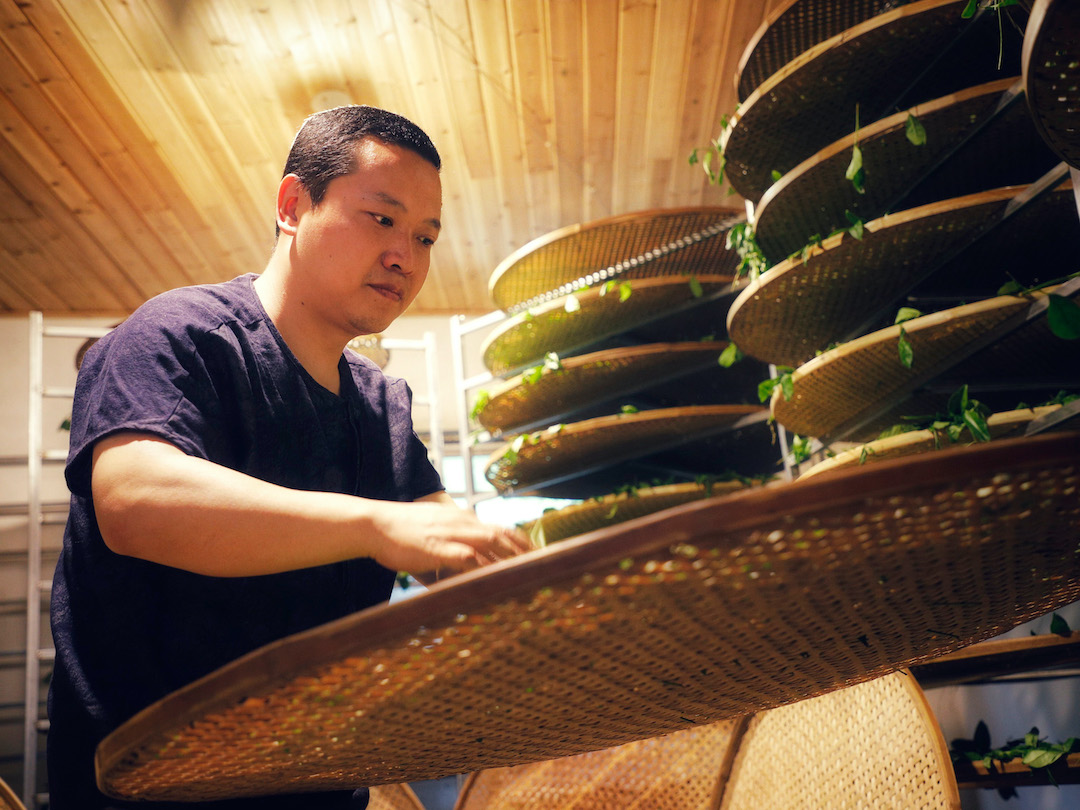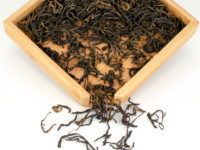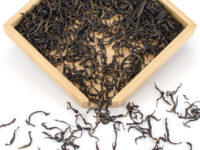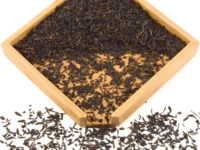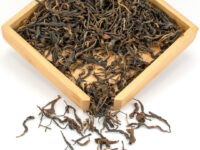Jin Jun Mei (Champion Steed)
Black Tea 2025
The authentic and original Jin Jun Mei black tea from Tongmu Village.
Ethereal honey, spice, malt and dried rose aromatics envelop a longan-sweet depth that’s unique to Tongmu’s seed-grown heirloom tea bushes.
$87.00
- Tea Origin
- Fa Longkeng Mountain Farm, Tongmu Village, Wuyishan City, Fujian Province, China
- Tea Bush
- Tongmu Cao Mukui Qizhong (Tongmu Heirloom Tea Bush)
- Tea Maker
- Wu Jianming
- Harvest Time
- Mid-April
- Plucking Standard
- One bud
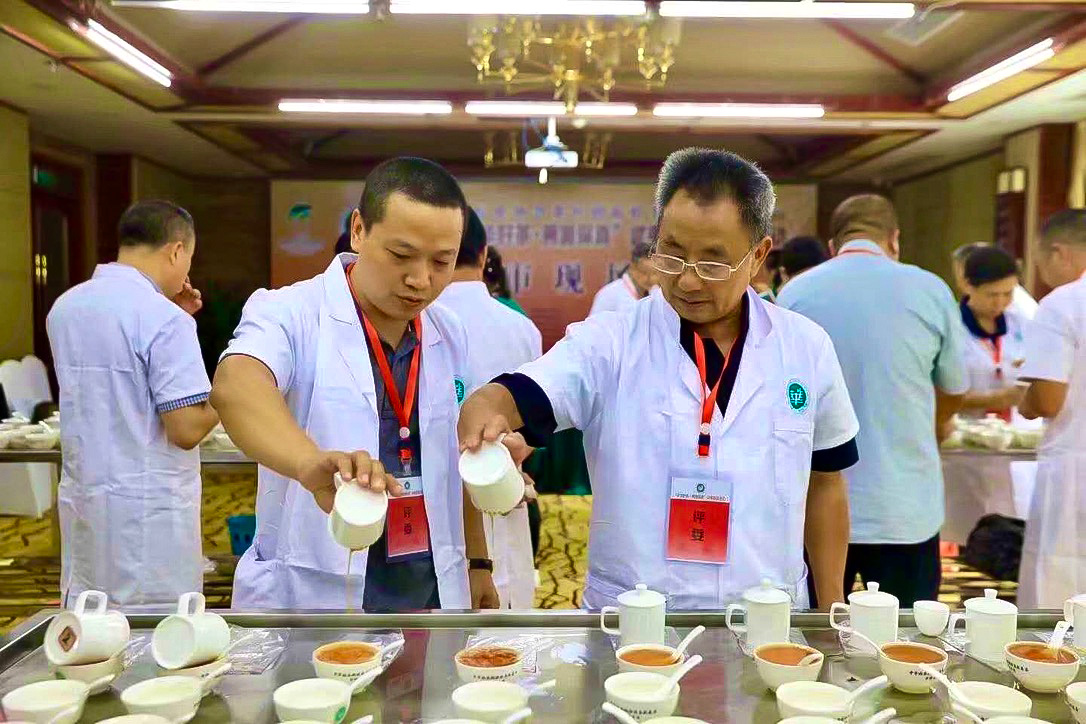
Since the very first batch of Jin Jun Mei (Champion Steed) in 2005, this tea quickly became a phenomenon, a new classic, and eventually a wide-spread style of black tea unto itself. Today, the style has become so popular that teas with the name “Jin Jun Mei” come from many origins, many tea plant varieties, and in varying degrees of quality.
The original, however, still stands apart.
We present to you the authentic Zhengshan Jin Jun Mei made—as it originally was—crafted fully by hand using only spring buds from heirloom tea bushes within the protected origin of Tongmu. As a historic tea production area with unique local biodiversity, Tongmu’s environment is heavily protected and kept pollution-free. Both Tongmu and the land surrounding it are a national nature preserve and designated UNESCO world heritage site.

Jin Jun Mei’s wiry black-and-gold buds brew a pale golden infusion that reveals its scent in layers, first with sweet pastry crust aromas and then giving way to dried rose. Pleasantly balanced flavors of honey and malt persist over multiple infusions with the chewy, longan-sweet depth of Tongmu’s unique heirloom tea bushes.
When it was first invented by our old friend Mr. Liang Junde 20 years ago, Jin Jun Mei was unlike any tea produced in the historic origin of Tongmu before. It was the most expensive black tea ever sold at its inception and its astounding success was the harbinger of the modern black tea renaissance.
The Tea Makers of Tongmu: Centuries on the Cutting Edge
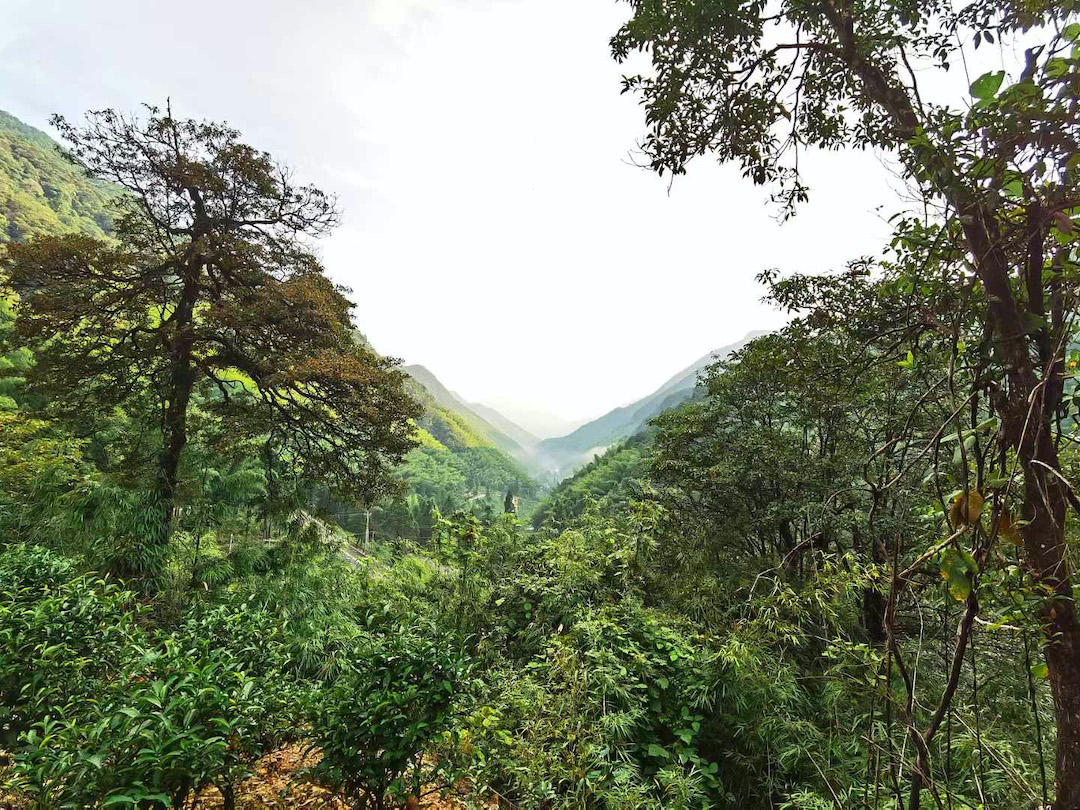
The small mountain-pass village of Tongmu has had an immense impact on the world of tea, both historic and contemporary. Tongmu was the original birthplace of black tea four centuries ago, and the world has its ingenious tea makers to thank for the modern proliferation of fully-oxidized black teas that we enjoy today. Now, thanks to the invention of Jin Jun Mei, it has also inspired innumerable spring black teas of never-before-tasted quality.
Jin Jun Mei itself was a complete departure from Tongmu’s long tradition of smoking the tea over pine charcoal to create Lapsang Souchong’s signature campfire smell. As Liang Junde developed his eponymous Jin Jun Mei, it was clear that he understood the need new innovation in the opening tea market of China, but he also kept a focus on preserving the singular flavor of Tongmu’s quntizhong heirloom tea bushes and their signature longan-fruit sweetness. In June of 2005, the first batch of Jin Jun Mei was born, and the rest is history. Its runaway success inspired a subsequent wave of high-end black teas such as Anji Hong and made Mr. Liang one of China’s most famous living tea makers.
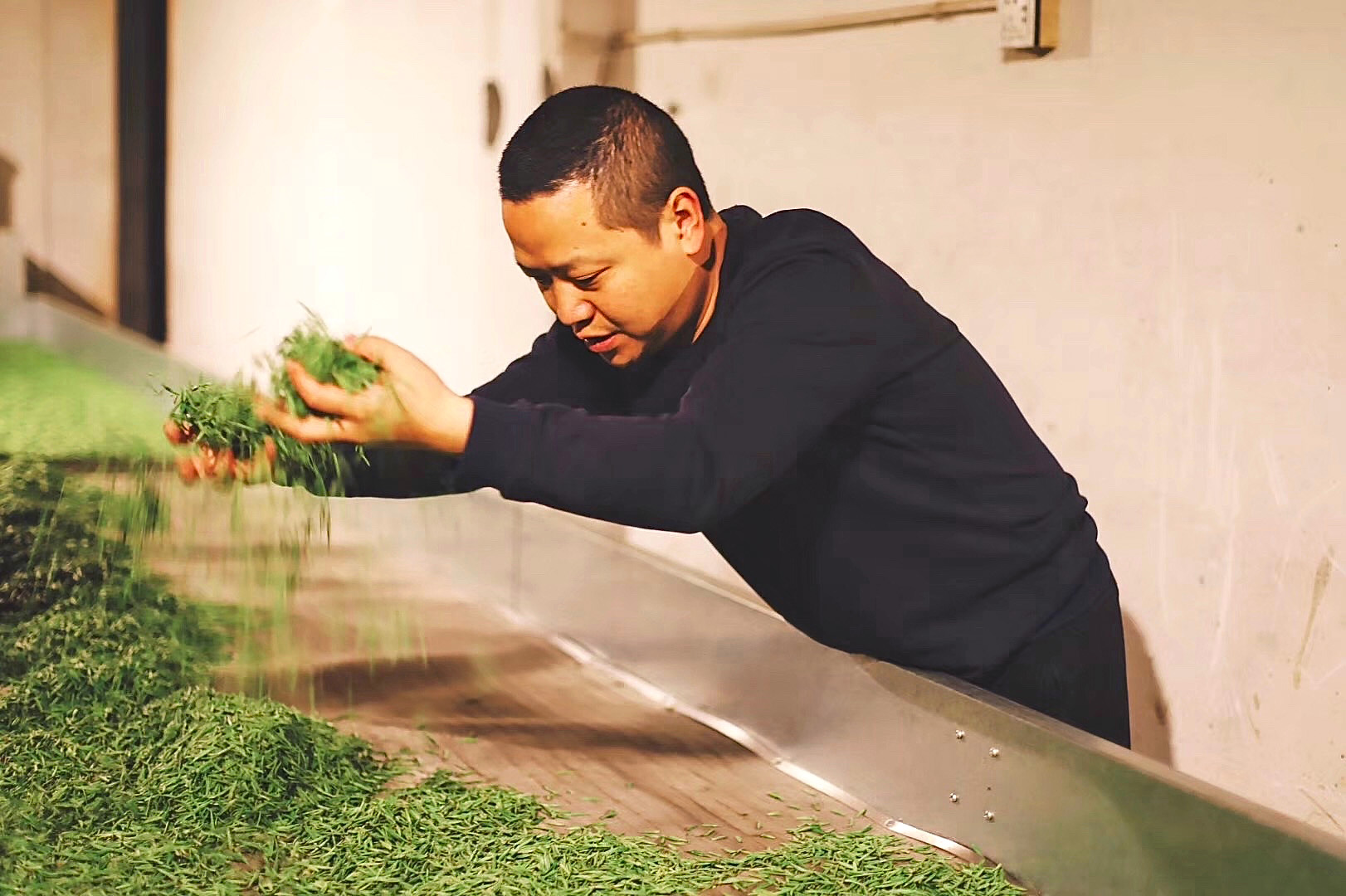
Wu Jianming—the maker of this microlot of Jin Jun Mei— is Mr. Liang’s student and nephew, and is one of the rising stars in Tongmu’s next generation of tea makers.
When the young Mr. Wu learned black tea production from the venerable Mr. Liang, he not only took on his teacher’s traditional techniques, but took on that same spirit of innovation. Mr. Wu went on to develop his own teas and his own style, like the extraordinary Drunken Peach, which also benefits from wulong-making techniques learned from another master, the distinguished Liu Guoying. When it comes to Jin Jun Mei, however, Mr. Wu has adhered closely to the art of his original teacher. His Jin Jun Mei carries the same painstaking, all-out expression of the Tongmu terroir and tea-making that Mr. Liang strove for when he originally developed this tea. For both of these Tongmu natives, this tea is still treated as a magnum opus, a statement for others to measure their work by.
Making Jin Jun Mei by Hand
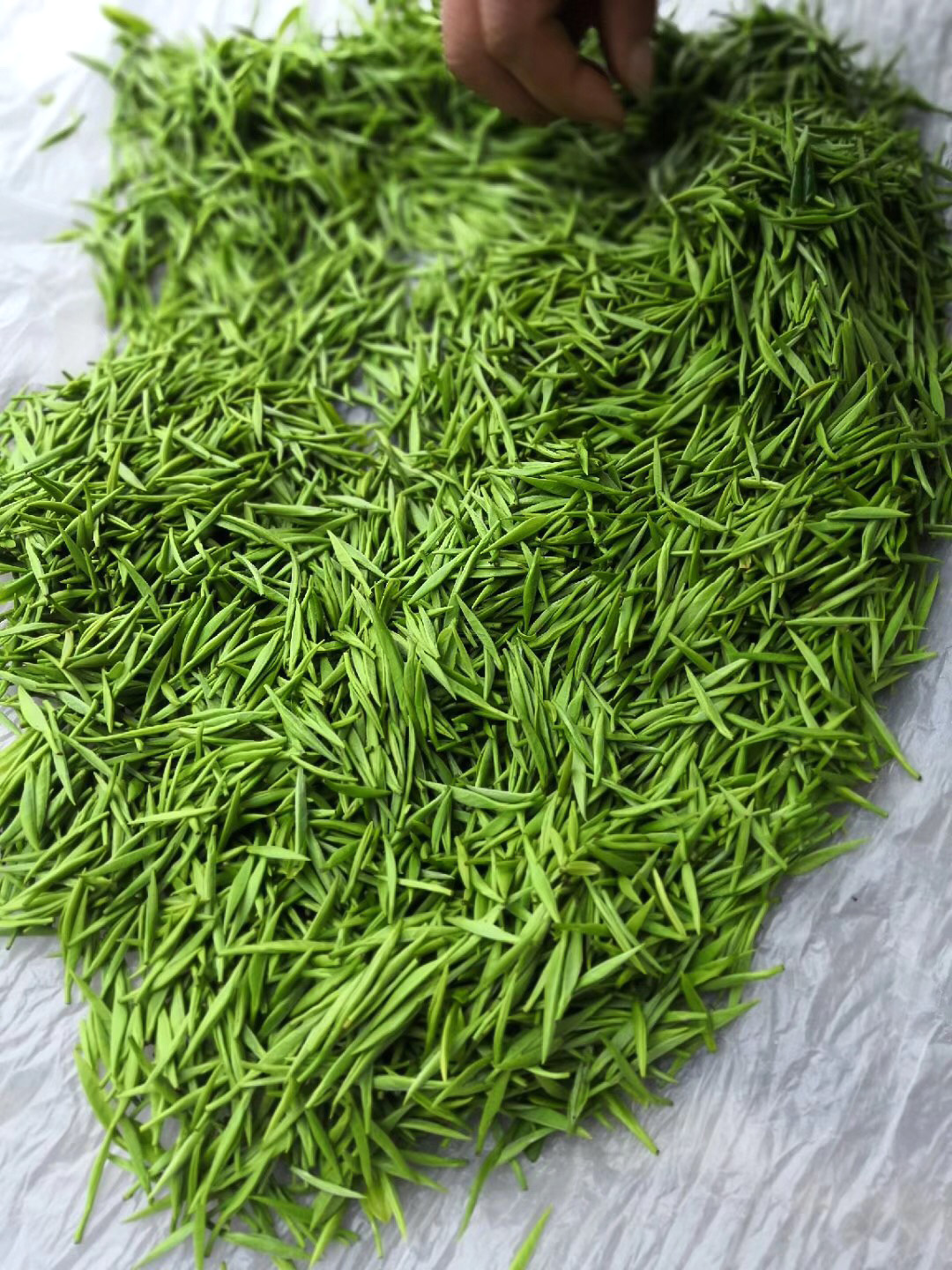
The buds used to make Jin Jun Mei are individually plucked with meticulous care. Combined with the particularly small size of the buds from Tongmu’s small-leaf heirloom bushes, the one-bud plucking standard means that the harvest takes lots of time and skilled work. It would take a single person over 6 days to pick the more than 100,000 tiny buds needed to make a single kilogram of finished Jin Jun Mei. The harvest window lasts only 15-20 days.
The scarcity of this material is compounded by the terrain of Tongmu’s heirloom gardens in themselves. In addition to the limited land area of Tongmu’s steep mountain valleys, its old seed-grown tea gardens are comprised of scattered tea bushes that are interspersed with natural forest vegetation. The result is very pure, clean, and dynamically flavored tea, but these pre-modern tea gardens may grow just half the tea of equal land area in a modern tea garden.
Once the fresh tea buds are gathered, the key steps that develop this black tea’s aroma and flavor are the withering of those buds and their subsequent hand-rolling and oxidation. These are also the most difficult processes to control. Tea buds take even greater technical skill to process than traditional open-leaf black teas, since their multiple layers make them difficult to develop evenly in both these stages.
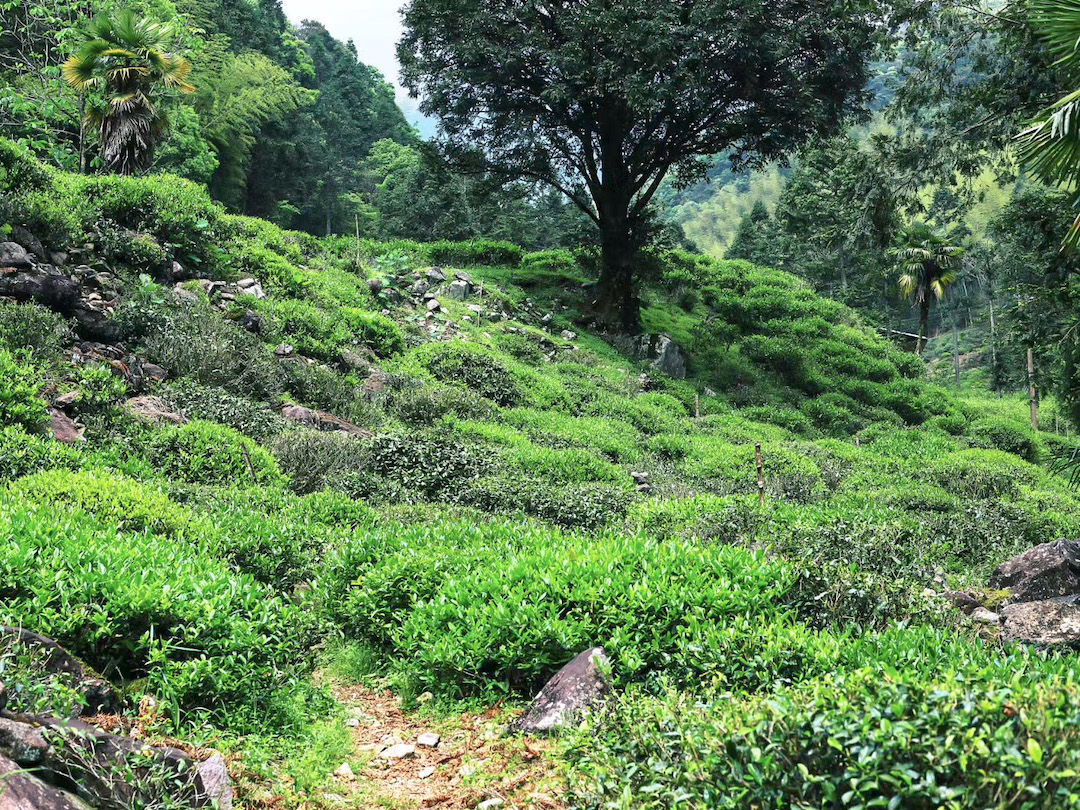
After 8 to 10 hours of being alternately kneaded and resting in cloth-covered bamboo baskets to oxidize, the tea’s development is halted at the ideal stage by exposing the buds to heat, denaturing the enzymes that drive the oxidative process. Unlike Tongmu’s original far-famed Lapsang Souchong, this tea is not charcoal-smoked but rather oven-dried to preserve the tea’s natural character. Buds are then dried to a stable level of moisture content and screened to remove imperfect leaves.
The final result is wiry, meticulously clean leaf buds with mottled colors of ashy grey down, cloaking rich black and gold hues.
No chemical fertilizer, pesticide, or herbicide was used in the production of this tea. Click here to read more about our promise to fair trade and the environment.

